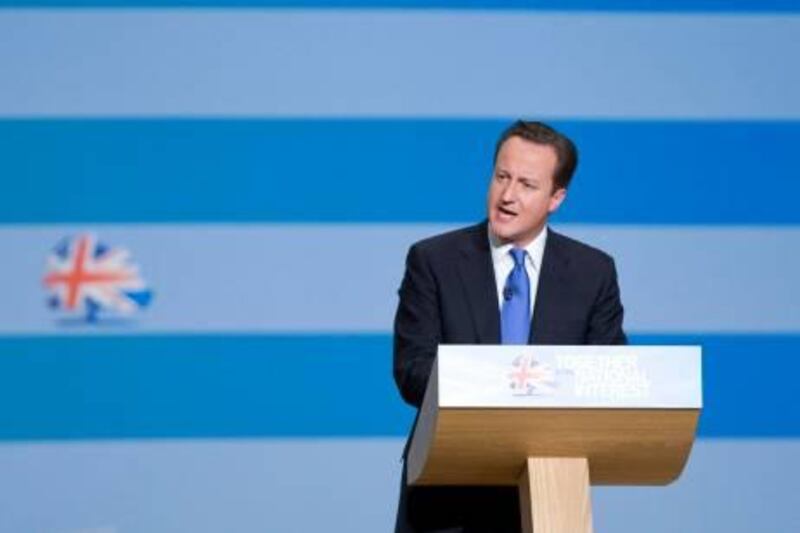David Cameron, Britain's prime minister, was all gung-ho about culling quangos as part of his effort to cut the UK's hefty debts. Some 180 will have to go, according to documents leaked to the BBC and The Daily Telegraph. For a government seriously in search of savings, these taxpayer-funded independent organisations appear to be the easy targets.
Now, it seems his hope of making immediate huge savings might be scuppered. The quangos' multibillion-dollar liabilities from pensions, redundancies and rental contracts could outweigh savings for up to 10 years, according to papers seen by The Guardian on Friday. These quasi autonomous non-governmental organisations are like weed - they grow profusely however hard you try to kill them off. There are now about 1,200 of them, costing £64 billion (Dh374.85bn) a year according to the hawkish campaign group Taxpayers' Alliance. The cabinet office puts the number at 790, consuming about £34bn. The discrepancy shows how difficult it is to know exactly how many there are.
Mr Cameron has the backing of many in the UK, who believe that apart from costs, quangos often perform wastefully and duplicate roles. Take the environment: there is the air quality expert group, the expert panel on air quality standards, the committee on medical aspects of air pollutants (all facing the axe) and the advisory committee on the releases to the environment (to stay). Then there are such unpronounceable bodies as the committee on carcogenicity of chemicals in food, consumer products and the environment and the committee of mutagenicity of chemicals in food, consumer products and the environment (both culled) and the advisory committee on hazardous substances (saved).
There are also those that seem to undermine each other's work; while government bodies such as the Food Standards Agency warn the public against eating fatty foods such as chips, the Potato Council proudly holds an annual National Chip Week. Both are on the survivors' list to continue the competition over public health. Andrew Haldenby, the director of the think tank Reform, calls quangos "the worst kind of government, existing in a buffer zone, untouchable by electors or the market". In other words, they are unelected bodies supported by the taxpayer but remain politically unaccountable.
Some certainly do serve their purpose. Remploy has been providing employment to disabled people for 65 years and, from 1988, helping them find employment with other companies. Remploy is now under review, according to the leaked documents. Its demise would detrimentally affect the lives of many disabled people. While it deserves to stay, there are many others that will not be missed. But dismantling a quango is harder than setting one up - and once in place, its keen sense of survival cannot be underestimated. Politicians love them, too, hence their proliferation. Quangos offer an illusion of neutrality and a way of passing the buck when things go wrong.
Mr Cameron would do well to heed the advice of the independent think tank the Institute for Government. Its report agrees that cuts need to be made, given the confusion, lack of transparency, tensions and inefficiency of some of the quangos. But all this comes about because of the haphazard way quangos are formed. The cull, therefore, has to be made alongside reform that will give clarity on the roles and responsibilities of the quangos. The cuts must also save money.
According to the leaked documents, on top of the 180 to be abolished, more than 120 would be merged, more than 50 would be retained but substantially reformed, between 280 and 350 preserved and about another 100 reviewed, including the BBC World Service and the British Council. Four would be privatised, according to The Telegraph. The government says the list is outdated; this week the cabinet office will publish the finalised names and number of bodies to be axed.
If Mr Cameron's resolve weakens, he would not be the first one to cave in. Margaret Thatcher, the last Conservative prime minister but one, came into power in 1979 determined to throttle them. Tony Blair, the Labour prime minister who followed her successor, John Major, pledged to dump them into the "dustbin of history". His successor, Gordon Brown, wanted a bonfire. They all failed.





